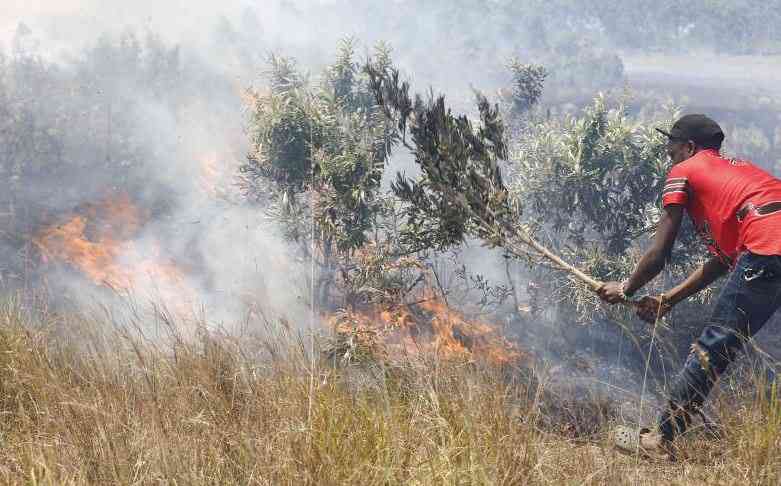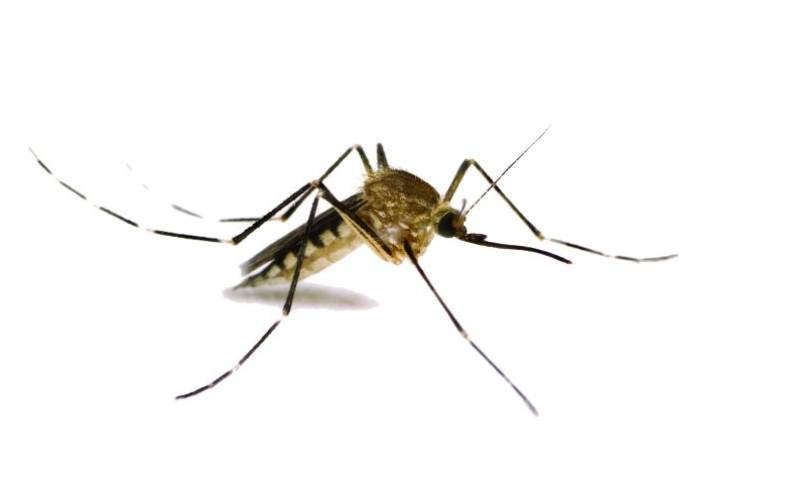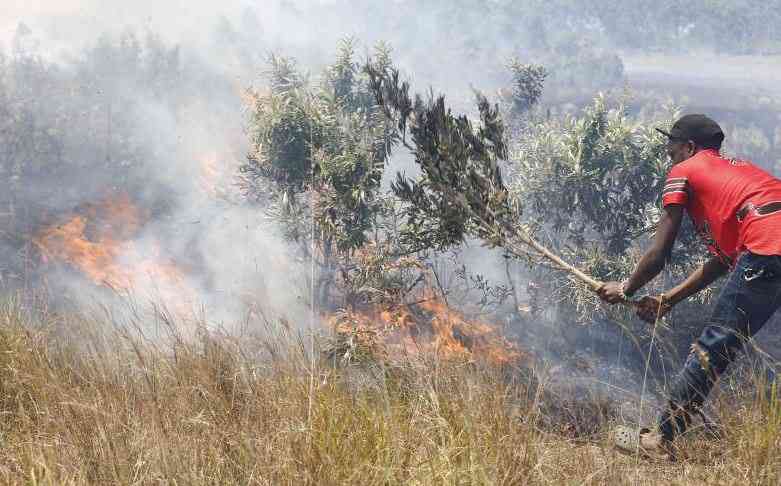
Scientists are working towards introducing a plan to allow controlled burning in protected areas to reduce wildfire outbreaks in the country.
The scientists are now drafting a fire management plan, a document that fuses science and indigenous knowledge to help in the fight against increasing wildfires.
“There are no laid-out plans to prevent wildfires in the country. The only existing approach is fighting fires whenever they erupt. We are coming up with guidelines that will explore traditional and scientific ways of controlling fires within delicate ecosystems.” Amos Chege, a researcher, said.
In the ‘fight fire with fire’ plan, the scientists are proposing that portions of areas within protected areas can be set on fire in a controlled manner during certain times of the year. Given that the fires are controlled, they say, they cannot spread like wildfires that burn large sections at once.
“Burning sections of areas in a controlled manner is healthy because it promotes regeneration. When wildfires break out, there will be little to burn, and this reduces the intensity of wildfires,” Chege said.
Fires have been traditionally used to control pests and promote the growth of different species of plants within ecosystems. Farmers also use fires in land preparation.
The researchers came up with the idea given that wildfire management in landscapes is overlooked, including the 2025 Wildlife Conservation and Management Bill 2025. They are submitting the document as part of the comments on the 2013 Wildlife Act that is currently under review.
“Controlled fires have traditionally been used in countries like Australia and Botswana to control the intensity of wildfires. Countries like Kenya can adopt similar approaches, especially in sensitive ecosystems that are prone to fires,” said James Millington, a researcher from Leverhulme Centre for Wildfires, Environment and Society.
The plan proposes that before a section is set on fire, a biodiversity evaluation will be conducted to ensure that critical species are not lost during the burning.
“The drill is that when wildfires occur, there will be little material left to burn on the ground, and this reduces the intensity,” Dr Millington said.
With increased impacts of climate change across several sensitive ecosystems in the country, the researchers said fighting fires with fires is one of the innovative and cost-effective ways of fighting fires. They said that although wildfire outbreaks have reduced globally due to the reduction in forests and the size of protected areas, wildfires are becoming more intense whenever they happen.
Taita Taveta County executive committee member for Water, Environment, Sanitation, Climate Change, and Natural Resources Grantone Mwandawiro said that fighting wildfires is costly especially for counties.
“Funding firefighting is expensive, but it is a natural occurrence that we often deal with, especially within the Tsavo ecosystems. Out of the Sh18 billion which we are raising to mitigate fires, we have only managed to raise Sh84 million,” he said.
Coupled with longer, drier seasons being experienced in areas like Tsavo, he said the risk of wildfire outbreaks is higher.
“But with integrated fire management plans in place, we will not only have to respond when disaster strikes as it has been all along,” he said.
Within the plan, communities living around protected areas and conservancies will also be engaged in the ‘fire against fire’ fight.
 The Standard Group Plc is a multi-media organization with investments in media platforms spanning newspaper print
operations, television, radio broadcasting, digital and online services. The Standard Group is recognized as a
leading multi-media house in Kenya with a key influence in matters of national and international interest.
The Standard Group Plc is a multi-media organization with investments in media platforms spanning newspaper print
operations, television, radio broadcasting, digital and online services. The Standard Group is recognized as a
leading multi-media house in Kenya with a key influence in matters of national and international interest.











